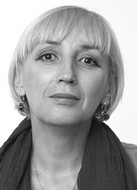Socially sensitive specifics of Physical Education and Sport bachelor training process
Фотографии:
ˑ:
Teoriya i praktika fizicheskoy kultury №3 2018, pp.39-40
Dr.Hab., Professor E.A. Bayer1
PhD, Associate Professor S.N. Pozhidaev1
PhD, Professor A.A. Knyazev1
1Don State Technical University, Rostov-on-Don
An increased priority is being given to the physical education and sport (PES) specialist training systems to facilitate the professional careers in the national PES system. Objective of the study was to give theoretical grounds for a professional excellence education course with a special emphasis on the values-and-senses-related aspects of the future specialist competitiveness building process. In the context of the students’ values-and-senses-related competency based on the motivations-centered approach, we have developed the education course to help students accumulate due knowledgebase and skills for the model competitiveness and viability building by the relevant sport tools. The study data and analysis showed benefits of the innovative project technology mastering and practice-oriented education for formation of a highly competitive and viable specialist having due competences and highly adaptable to the rapidly changing social conditions.
Keywords: professional education, competency, competitiveness, innovations, technologies, students, social adaptation and integration.
References
- Bayer E.A., Pavlov I.B. Pedagogicheskaya sistema formirovaniya zhiznestoykosti detey-sirot sredstvami fizicheskoy kultury i sporta v usloviyakh detskogo doma [Physical education and sports based educational system to build viability in orphans inchildren's home]. Azov: AzovPechat publ., 2012, 648 p.
- Bal'sevich V.K., Lubysheva L.I. Fizicheskaya kultura: molodezh i sovremennost [Physical culture: youth and modernity]. Teoriya i praktika fiz. kultury, 1995, no. 4, pp. 2-7.
- Belyaeva L.A. Filosofiya vospitaniya kak osnova pedagogicheskoy deyatelnosti [Philosophy of education as a basis of pedagogical activity]. Yekaterinburg,1993,147 p.
- Leontiev D.A. Lichnostnoe v lichnosti: lichnostny potentsial kak osnova samodeterminatsii [Personal in personality: personal potential as a basis of self-determination]. Uchenye zapiski kafedry obschey psikhologii MGU im. M.V. Lomonosova. no. 1. Moscow: Smysl publ., 2002, pp. 56-65.
- Manzheley I.V. Pedagogicheskie modeli fizicheskogo vospitaniya [Pedagogical models of physical education]. Moscow: Teoriya i praktika fiz. kultury i sporta publ., 2005, pp. 54-55.
- Osnitskiy A.K. Psikhologicheskie mekhanizmy samostoyatelnosti [Psychological mechanisms of independence]. RAE publ., 2010.
- Pozhidaev S.N. Innovatsionnoe proektirovanie pedagogicheskikh objektov – instrument povysheniya kachestva vysshego professionalnogo obrazovaniya fizicheskoy kultury i sporta [Innovative design of educational facilities to improve quality of Physical Education and Sport higher education]. Obrazovanie. Nauka. Innovatsii: Yuzhnoe izmerenie, 2010, no. 5 (15), pp. 28-34.




 Журнал "THEORY AND PRACTICE
Журнал "THEORY AND PRACTICE